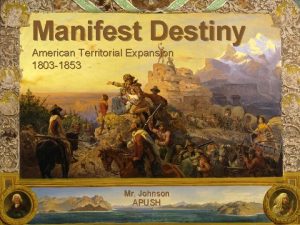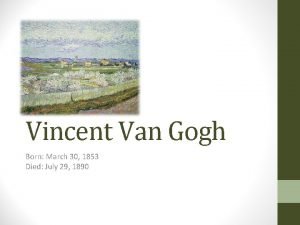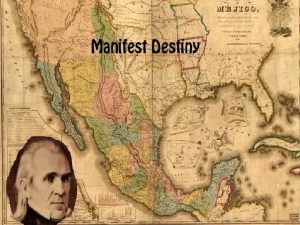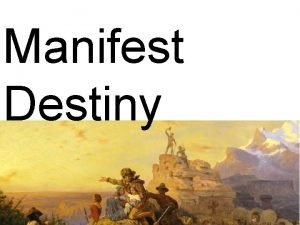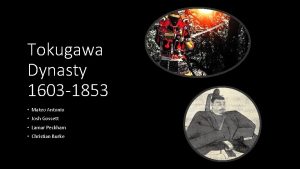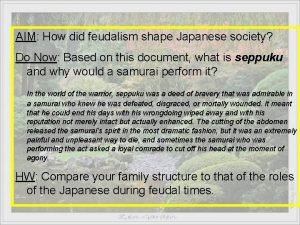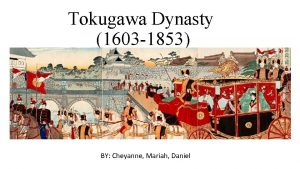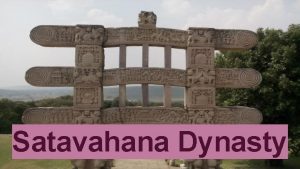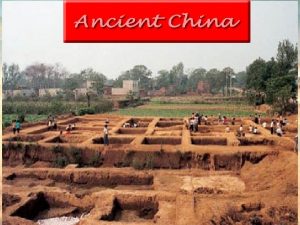Tokugawa Dynasty 1603 1853 Mateo Antonio Josh Gossett







- Slides: 7

Tokugawa Dynasty 1603 -1853 • Mateo Antonio • Josh Gossett • Lamar Peckham • Christian Burke

Politics • The Tokugawa political system was perhaps the most complex feudal system ever developed. It was like the European feudal system. • Pope, emperor or king, feudal barons, and retainers in Europe compared to emperor, the shogun, the daimyo, and samurai retainers in Japan • But it was also very bureaucratic, an attribute not associated with European feudalism.

Economics • Their primary crop was rice, but Japan also had a stronghold in crops such as, • sesame seed oil • indigo • sugar cane • mulberry • tobacco • and cotton • As a result, Japan's commerce and manufacturing economies were growing, leading to a rise in urban culture.

Culture of the Tokugawa Dynasty • As early as 500 C. E Chinese culture was making its mark on Japan which is including the time of the Tokugawa era from 1603 -1853. • During the Tokugawa era, various art forms flourished in Japan. Art forms such as Kabuki which is a form of theater that combines elaborate costumes, music, and dance. (It became popular in Japanese cities) • Writers and poets explored new forms of literature, including short verse called Haiku. • Japanese absorbed Chinese influences in art and literature. They also adopted Buddhism from China.

Social Ladder of the Tokugawa Dynasty • Emperor- had the highest social class but had little political power. • Shogun - a military leader that held all political power. • Daimyos- military lords that were subjects of the Shogun • Samurai were highly respected warriors in the military. • Farmers- highly respected because they grew their own food. • Artisans-considered less important than farmers, but produced many necessary goods • Peasants-bottom of the society didn’t provide much to society

Military • The samurai were warriors that defended their daimyo’s land settled disputes between other lords • The shogun was the military ruler in feudal japan • The shogun also ruled on behalf of the emperor and demanded the allegiance of the daimyo • In theory the daimyo respected the shoguns authority, but the system was unstable because the power was decentralized, and allegiance based on military strength • A lord who grew strong enough might challenge the shogun and seize power himself This Photo by Unknown Author is licensed under CC BY-SA

Reasons for Decline • The Shogunate had betrayed the core values of Japanese society, was too weak to lead Japanese society, and needed to be overthrown. The fall of the Tokugawa Shogunate could have been delayed or even prevented had there been competent leadership during the American Intrusion. • In January 1868, they attempted to overthrow the newly throned Shogun Tokugawa Keiki. After a short period of fighting, Emperor Meiji took supreme control of the country. During his reign from 1867 to 1912, Japan was completely transformed, and it became a world power.
